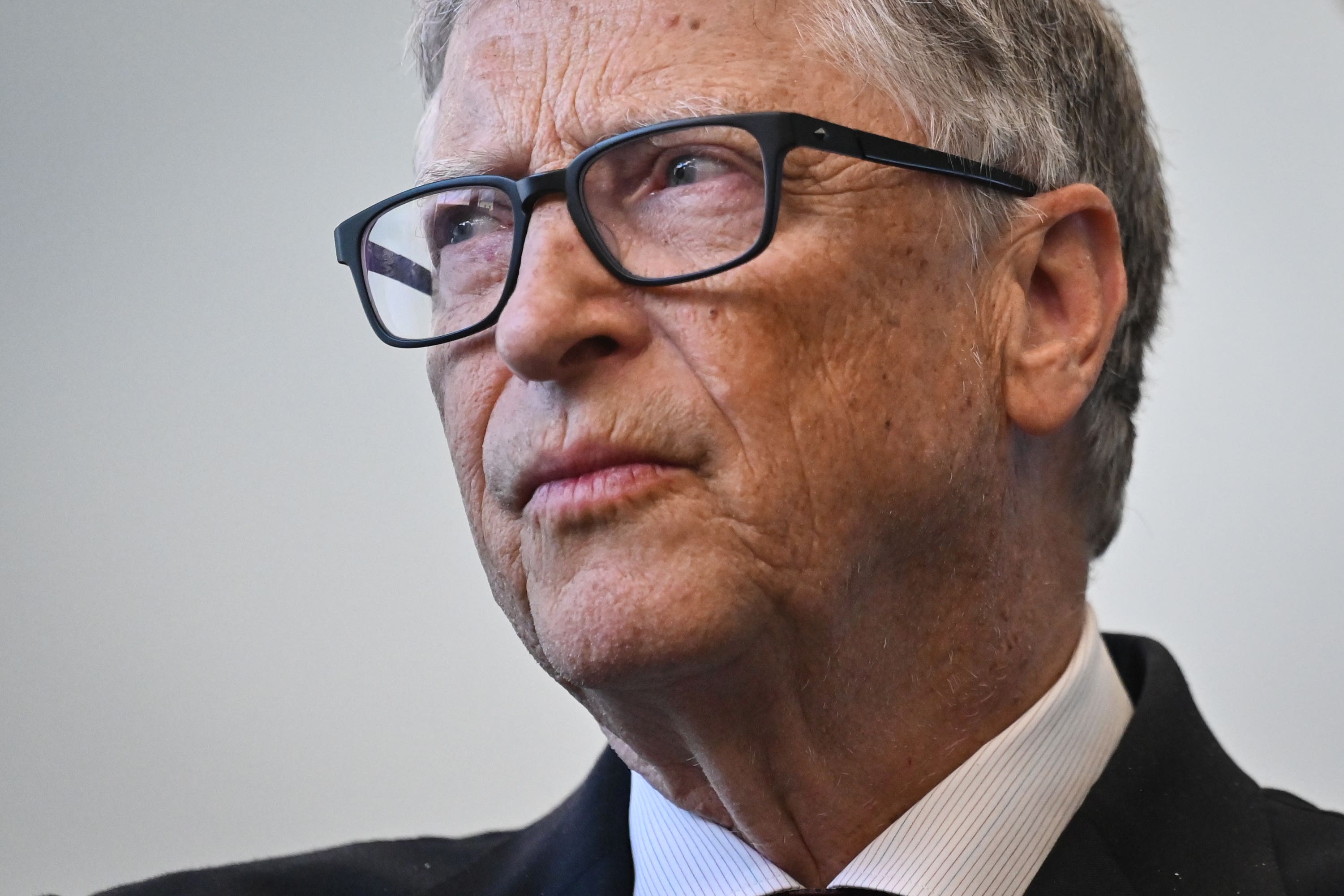Bill Gates warns political backlash could ‘slow down’ green transition
The billionaire philanthropist was speaking in London at a summit hosted by his clean energy investment vehicle Breakthrough Energy.

Bill Gates has warned that political backlash against green policies in developed countries could hamper the fight against climate change.
“Politics could slow this stuff down,” he said. “Rich countries not only need to [reduce] their own emissions, but they also need to be the primary source of both the risk capital and the bootstrap funding… to get to zero green premium.”
Mr Gates was speaking at a London summit organised by his energy investment firm, Breakthrough Energy, which backs tech companies trying to cut greenhouse gases.
The “green premium” is a phrase Mr Gates has used to refer to the extra cost of doing business in a less polluting way.
It comes amid fears of a pushback against policies to address climate change in the US, Europe and some corners of UK politics.
Green parties lost seats across the board in the recent European Union elections, raising concerns that the bloc could weaken its climate ambitions.
In the UK, the Conservatives last year watered down commitments on electric cars and home insulation.
Meanwhile in the US, Donald Trump has a slight lead in the polls ahead of a November presidential election. Mr Trump has repeatedly criticised US government plans to cut emissions.
Mr Gates added that while he is “optimistic” about the world’s overall response to climate change, he cast doubt on the chances of hitting the target of net zero emissions by 2050.
He said: “It would take wild success to actually get to zero by 2050 because that’s every country, every sector.”
He added: “I don’t think I’m crazy to be optimistic, though I’d be the first to admit that hitting this specific goal of absolutely net zero emissions by 2050, we’re not likely to achieve that.
Mr Gates, once the world’s richest person, founded computing giant Microsoft and has a reported net worth of more than 130 billion dollars.
In recent decades, he has established himself as a prominent philanthropist via the Bill & Melinda Gates Foundation, which he set up in 2000 with then-wife Melinda to tackle global health challenges like malaria.
In 2015, Mr Gates turned his attention to the climate crisis, setting up Breakthrough Energy. The investment vehicle manages 4.5 billion dollars and has 165 portfolio companies.
Earlier at the three-day event, Mr Gates said AI would make it easier to fight climate change by making innovation “far easier to do”.
He said: “AI, in every field of endeavour, will be accelerating innovation, whether that’s in medicine or helping with tutoring, education.
“[With] climate [change], some of the complex things like modelling fusion energy – thank goodness AI is going to make that far easier to do.”
However, he warned that it is “being used by people with good intent”, acknowledging that it “could be used” by people carrying out cyber attacks or political interference.
“You have to make sure the good guys are staying ahead in detecting and preventing that type of usage,” he added.
Bookmark popover
Removed from bookmarks